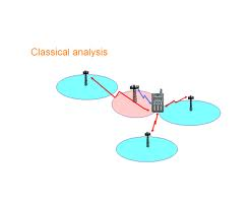The European Commission disapproved of the project of asymmetric tariff regulation for new entrants of mobile telephony, conceived by The French telecommunications and postal regulator (ARCEP – Autorité de regulation des communications électroniques et des postes)
http://www.thejournalofregulation.com/spip.php?article1429

The French telecommunications and postal regulator (ARCEP – Autorité de regulation des communications électroniques et des postes) has prepared a project of pricing of mobile call termination, that is to say the amount that an operator must pay to reach another user. Thus, when a subscriber of Orange mobile calls a subscriber of Free mobile, Orange gives money to Free. Inversely, when a subscriber of Free mobile calls a user of Orange mobile, Free gives money to Orange. The regulator notes that Free mobile, new entrant, have less subscribers than the three operators, and will therefore receive less money than the others. It's the reason why, it justify to his advantage a temporarily higher pricing, the time it finds its place in the competitive market of mobile phone. On April 12, 2012, the European Commission publicly expressed that the principle of an asymmetric pricing policy is insufficient. The French telecommunications and postal regulator (ARCEP – Autorité de regulation des communications électroniques et des postes) has responded by standing that the principle of asymmetrical pricing was not sufficient and that justifications will be provided.
© thejournalofregulation
What we have here is a difference of economic analyses and not a difference of principle. On the principle, the two authorities, the European Commission and The French telecommunications and postal regulator (ARCEP – Autorité de regulation des communications électroniques et des postes) agree with the implementation of an asymmetric regulation for new entrants, because it’s a question to promote competition in the mobile phone market.
This treatment have to be justified, that is to say, the situation of disadvantage in that the new entrant is currently located have to be shown. For the French regulatory authority, the new entrants are disadvantaged because they have to pay more for transportation (-theirs subscribers – fewer- calling more recipients who are not their customers), because they are not of economy of scale or economy of range.
For the European Commission, the evidence of such weakness, which would justify charging asymmetry, is not yet reported. Indeed, the transport of communications made by subscribers of Free mobile by Orange mobile was contractually negotiated, so it is not structurally unfavourable. In addition, the imbalance is not necessarily of the difference in size of the operators but their difference of strategies. The French regulator, if it wants to maintain an asymmetric pricing must therefore build new economic evidence. The European Commission gives him three months to do it. This tells us that while the asymmetry is a principle which remains but it’s one with a burden of justification on the shoulders of the regulatory authority.

votre commentaire